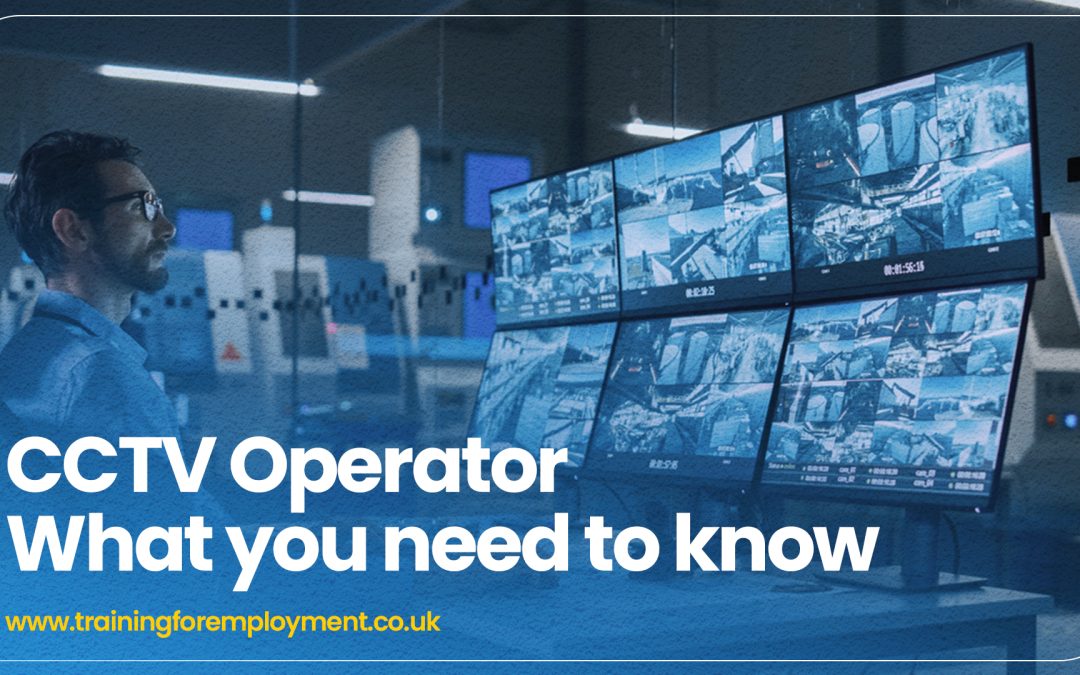CCTV cameras are everywhere these days. They have become the go to visual and practical deterrent for the modern age. Want to become a CCTV operator? Well here are some things you may like to know:
History
Take a guess – when was the first CCTV system installed? The early 90s? Some point in the 80s? Nope – it was in 1948! German engineer Walter Bruch invented the system so that V-2 rockets could be launched and observed from a safe distance during World War 2.
However, it didn’t see its first commercial, inner-city usage until 1968, where the city of Olean, New York installed cameras on it’s main street to curb crime rates. The system saw a big rise in popularity in the 70s with the advent & growth of VCR, and has since gone on to find even more wide-spread use with the implementation of digital recording devices.
Typical Set-Up
CCTV is actually an umbrella term for security camera set-ups now. Strictly speaking, CCTV (Closed Circuit Television) refers to cameras that produce an analogue signal. Nowadays, however, the spread of these cameras is declining, in favour of digital IP cameras.
Both systems may produce different results, and CCTV cameras can still be linked to an analogue TV and VCR, but the typical set-up these days is the same for both. All the cameras on the system are linked to a digital recording device, that logs all of footage while at the same time displaying it on any linked up monitor. Some systems allow for manual control of the a camera’s position and zoom, whereas others are fixed.
These tend to be housed in one hub, where the CCTV operator will be situated. But even if he isn’t there, the digital system can be programmed to perform certain actions in response to certain situations. For example, if a camera senses movement during the night, it can set an alarm off.
Usage
Typically, you’ll spot CCTV cameras in busy areas. Shopping centres, city centres, etc. Some will be controlled by private companies, others by the government. They are used to prevent crime, alert people to certain situations (some one having a heart attack on the street, traffic building up, etc.), and keep an eye on staff too.

Image credit: wikipedia.org
CCTV Operator
So with such a sophisticated system, that can be set-up to run itself, what purpose does the CCTV operator serve? Well they are in fact the most vital part of the whole set up!
For you see, a camera can observe, record, and perform rudimentary tasks, but it can’t differentiate between a criminal and a member of the public. It can’t pick up on a guy putting a watch into his pocket. That’s why CCTV operators are vital to the systems success. They can sit at their bank of monitors and observe. They can spot previous offenders, watch for strange behaviors, and should they catch somebody stealing, they can act, either by alerts guards, or apprehending the thief by themselves!
Not that all CCTV operators are concerned with crime. Some monitor traffic, helping to keep it moving. Others can use the system to perform “surveys” (e.g. how many old ladies come in to our shop). It is a versatile and evolving sector of the security business.
The Course
We here at Training 4 Employment offer a CCTV Operator course that will set you up for a career in this exciting journey. Not only will it cover the basics of what it takes to be a Security Professional, but it will also teach you all you need to know to be a successful CCTV operator. For full details, click HERE.

